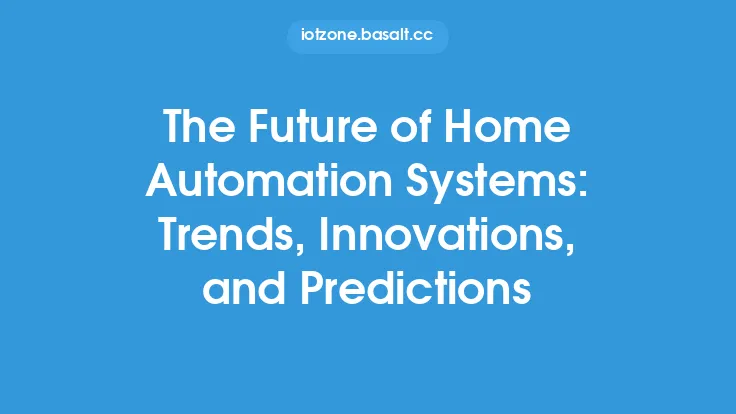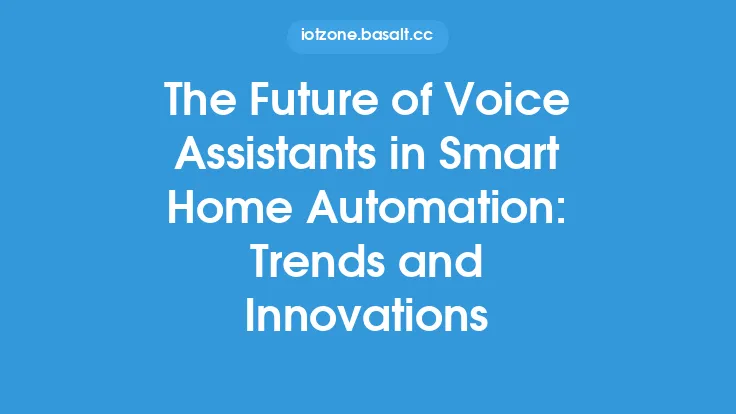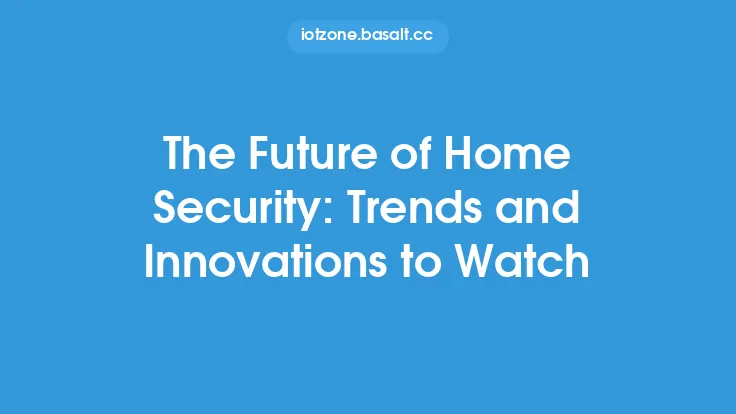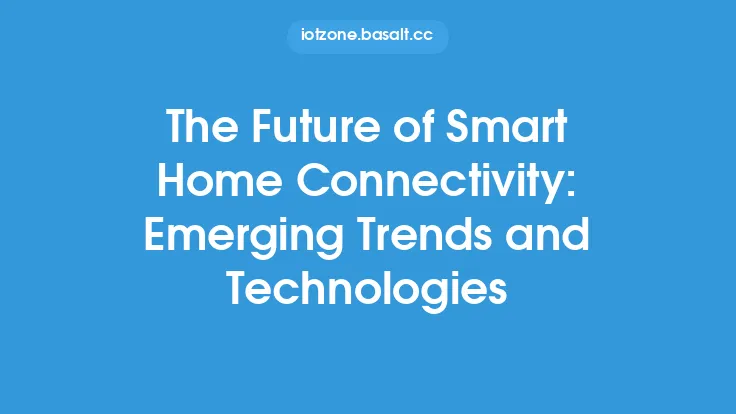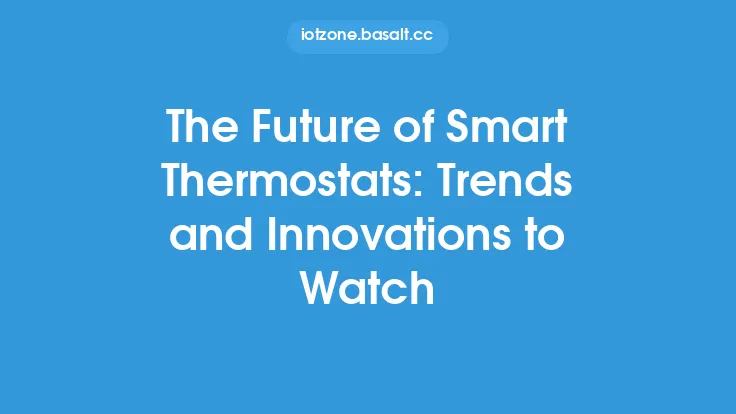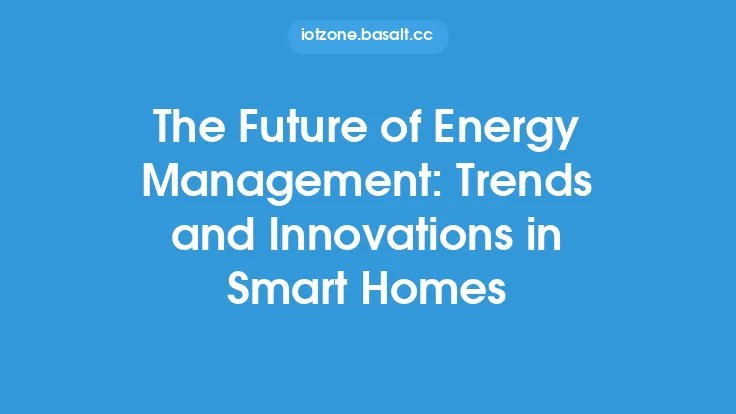The concept of smart home devices has been around for several years, but it's only recently that we've seen a significant surge in their adoption and development. As technology continues to advance, we can expect to see even more innovative and sophisticated smart home devices that make our lives easier, more convenient, and more enjoyable. In this article, we'll explore the current trends, innovations, and predictions in the world of smart home devices, and what we can expect from this rapidly evolving industry.
Introduction to Smart Home Devices
Smart home devices are essentially any device that can be controlled, monitored, or automated remotely using a smartphone, tablet, or computer. These devices can range from simple smart plugs and light bulbs to more complex systems like thermostats, security cameras, and home entertainment systems. The key characteristic of smart home devices is their ability to connect to the internet and communicate with other devices, allowing for seamless integration and control. This connectivity is typically achieved through wireless communication protocols like Wi-Fi, Bluetooth, or Zigbee, which enable devices to transmit and receive data.
Current Trends in Smart Home Devices
One of the most significant trends in smart home devices is the increasing adoption of voice assistants like Amazon Alexa, Google Assistant, and Apple Siri. These voice assistants allow users to control their smart home devices using voice commands, making it easier to manage and automate their homes. Another trend is the growing popularity of smart home hubs, which act as central control units for multiple smart devices. These hubs enable users to control and monitor their devices from a single interface, making it easier to manage their smart home ecosystem.
Innovations in Smart Home Devices
There are several innovations that are driving the growth and development of smart home devices. One of the most significant innovations is the use of artificial intelligence (AI) and machine learning (ML) algorithms, which enable devices to learn and adapt to user behavior. For example, a smart thermostat can use AI to learn a user's temperature preferences and adjust the temperature accordingly. Another innovation is the use of Internet of Things (IoT) protocols like Zigbee and Z-Wave, which enable devices to communicate with each other and with the cloud.
Predictions for the Future of Smart Home Devices
As we look to the future, there are several predictions that can be made about the development and adoption of smart home devices. One prediction is that we'll see a greater emphasis on security and privacy, as concerns about data breaches and hacking continue to grow. Another prediction is that we'll see more devices that integrate with popular voice assistants, making it easier for users to control their smart homes. We'll also see a greater focus on energy efficiency and sustainability, with devices that can help users reduce their energy consumption and carbon footprint.
Technical Advancements in Smart Home Devices
From a technical perspective, there are several advancements that are driving the development of smart home devices. One of the most significant advancements is the use of low-power wireless communication protocols like Bluetooth Low Energy (BLE) and Zigbee, which enable devices to consume less power and last longer on a single battery charge. Another advancement is the use of cloud-based platforms, which enable devices to store and process data in the cloud, reducing the need for local storage and processing.
Impact of 5G Networks on Smart Home Devices
The rollout of 5G networks is expected to have a significant impact on the development and adoption of smart home devices. With 5G, devices will be able to communicate with each other and with the cloud at much faster speeds, enabling real-time control and monitoring. 5G will also enable the use of more advanced technologies like edge computing, which will reduce latency and improve the overall performance of smart home devices.
Challenges and Limitations of Smart Home Devices
Despite the many benefits and advantages of smart home devices, there are also several challenges and limitations that need to be addressed. One of the most significant challenges is the issue of interoperability, which refers to the ability of devices from different manufacturers to communicate with each other. Another challenge is the issue of security, which is a major concern for users who are worried about the potential for hacking and data breaches.
Conclusion and Future Outlook
In conclusion, the future of smart home devices is exciting and rapidly evolving. With advancements in technology, innovations in device design, and growing adoption rates, we can expect to see even more sophisticated and integrated smart home devices in the future. As we look to the future, it's clear that smart home devices will play an increasingly important role in our lives, making our homes more convenient, more enjoyable, and more sustainable. Whether you're a tech enthusiast, a homeowner, or simply someone who's interested in the latest innovations, the world of smart home devices is definitely worth watching.
